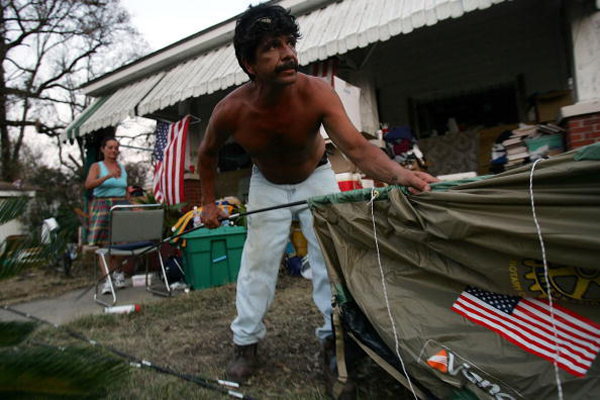- La Feria Community Holds Succesful Business Mixer Event
- Little Nashville to Take Place in Downtown Mercedes
- Lions Basketball Captures District Gold
- La Feria ISD Students Compete in Regional Chess Tournament
- Lions End First Half of 32-4A on a High Note
- La Feria ISD Held Another Successful Parent Conference
- Strong Appearance for Lions at Hidalgo Power Meet
- LFECHS Students Get to Meet Local Actress
- Students Participate in Marine Biology Camp
- Two LFECHS Students Qualify for All-State Band
Study: Immigrants Bear Brunt of Hurricane Harvey Hardships
- Updated: March 30, 2018

64 percent of immigrants report significant financial losses as opposed to 39 percent of U.S.-born residents. Photo: Platt/GettyImages
by Mark Richardson
HOUSTON – A new study finds that immigrants were almost twice as likely as non-immigrants to suffer unemployment and economic loss from Hurricane Harvey.
Six months after the massive storm ravaged the Texas coast, an analysis by the Kaiser Family Foundation and the Episcopal Health Foundation examined differences in how the storm affected immigrants and their U.S.-born neighbors. Shao-Chee Sim, vice president of applied research at the Episcopal Health Foundation, said immigrants were at a distinct disadvantage in recovering from the storm.
“Immigrants don’t have as much social network support as compared to native-born populations,” Sim said. “And also among those whose houses or properties were damaged, they were also less likely to apply for government assistance.”
The analysis showed 64 percent of immigrants reported significant financial losses as opposed to 39 percent of U.S. born residents. More than two-thirds of immigrants also said they had few or no relatives or neighbors nearby who they could rely on for help or support.
Also, immigrants – who often lack health insurance or other sources of care – were more likely than citizens to say they needed additional help getting medical care. Sim said many of the immigrants surveyed did not seek assistance out of concern over their legal status.
“Close to half of them whose houses were damaged say that they worry if they tried to get help, that they would draw attention to either their own or family members’ immigration status or issues,” he said.
Sim said immigrants mainly want just to repair their homes and get on with their lives.
“I guess the major takeaway from this analysis is that, even though immigrant Texans face more challenges and more vulnerabilities in terms of the recovery effort, they also basically wanted the same things as anyone else in the affected region,” he said.
Hurricane Harvey, which struck the Texas coast in late August, ranks as one of the most costly storms in U.S. history – causing 107 deaths and about $125 billion in damage.


